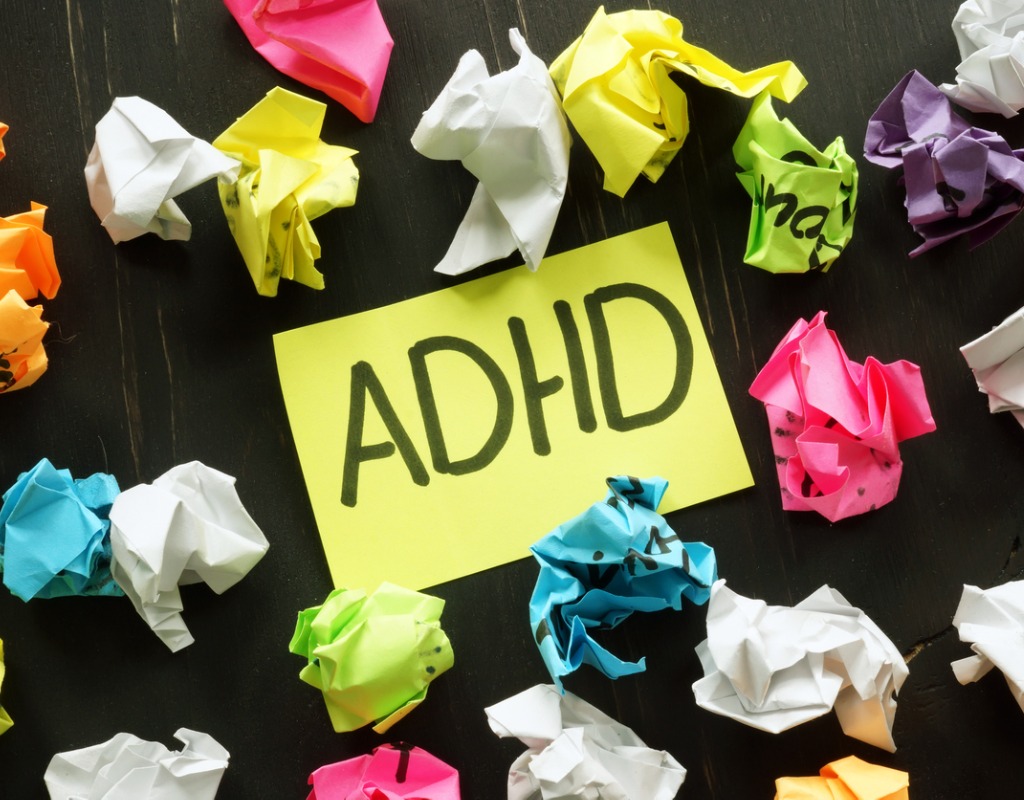
Blog: October is ADHD Awareness Month

Dr. Carey Heller is a licensed psychologist in Bethesda, Maryland who specializes in ADHD and Executive Function issues
ADHD Goes Beyond a Child Who is Bounding Off the Walls
Attention-Deficit/Hyperactivity Disorder (ADHD) is probably one of the most common disorders that parents and adults in general are aware of, even if they have no background in the medical or mental health fields. At the same time, there are a lot of myths out there about what ADHD is, inaccurate reasons to suggest ADHD is not present (i.e., my child is doing fine in school; he or she can focus for hours on playing video games), and these issues can sometimes impede people from seeking proper evaluation and treatment that would likely ultimately lead to less stress, higher achievement, greater life satisfaction, and many other positives as well.
A Few Common Myths:
- Someone has to be hyperactive to have ADHD- FALSE
- A child cannot have ADHD if they have good grades – FALSE
- An adult cannot have ADHD if they were not diagnosed as a child- FALSE
- If my child can focus on things that they enjoy for hours, they cannot have ADHD – FALSE
For a detailed explanation on technical aspects of ADHD, please see: CHADD.
In reality, ADHD is essentially a disorder that impacts self-regulation. With attention, individuals with ADHD have a difficult time regulating their ability to pay, sustain, and shift attention. This obviously impacts one’s ability to learn, retain information, stay engaged in tasks, and contributes to other issues as well. The other fairly well-known set of symptoms are issues with hyperactivity (i.e., not being able to sit still, excessive energy and movement, fidgeting) and impulsivity (i.e., blurting out answers, lying without intending to, making decisions without thinking about the consequences). Again, hyperactivity and impulsivity involve one’s ability to self-regulate their physical body and actions.
While the above-mentioned items are probably the better-known issues associated with ADHD, there are a few less obvious ones that can be red flags.
- Difficulties with time management, organizing time, tasks, and activities
- Poor sense of time and ability to estimate time completions for tasks
- Trouble getting started on tasks and procrastination
- Losing things frequently and trouble keeping physical items neat
- Trouble using and maintaining organizational systems such as using a calendar, task list, or planner
Some of the common and less well-known issues with ADHD may take the form of:
- Frequently turning in assignments late
- Missing work deadlines
- Getting overwhelmed easily when having a lot to do
- Trouble getting started on homework or work tasks
- Wasting a lot of time doing things instead of the important tasks
- Difficulty facilitating social plans
- Inability to consistently use organizational systems (i.e., infrequently writing down assignments in a planner)
- Missing social cues
Executive functioning is a term commonly used these days, that refers to mental processes that are involved in completing tasks. Planning, organizing, using working memory skills effectively, and other related skill sets encompass executive function abilities. Given the common deficits in ADHD, if someone has ADHD, they most likely have weaknesses in their executive function skills.
However, it is extremely important to be aware that at least some if not many of the symptoms of ADHD can also be due to other issues including anxiety, depression, lack of interest, vision issues, learning disorders, and so forth. Additionally, certain disorders/issues such as anxiety and depression can cause weaknesses in executive functioning (i.e., if someone is really nervous about getting their homework done because they have a lot of it, they may have trouble getting started, staying focused, and become easily distracted). This point illustrates that executive function weaknesses can be present without one having ADHD.
I hope that this article is helpful in giving you some insight into what ADHD is, how it may manifest, and some ideas of what to look for. In future blog posts this month, I will provide follow-up posts that discuss various aspects of treatment, interventions, and other helpful things for navigating ADHD.
Furthermore, for additional information, here are some other resources:
- Practical Parenting Strategies with Dr. Heller
- ADHD Topic Expert Articles
- CHADD
- Dr. Heller’s ADHD Related Articles
- Fidgeting to Improve Focus



Engage us on Facebook
Follow us on Twitter
Tweets by @mymcmedia